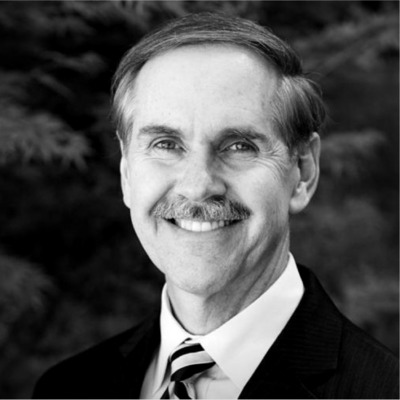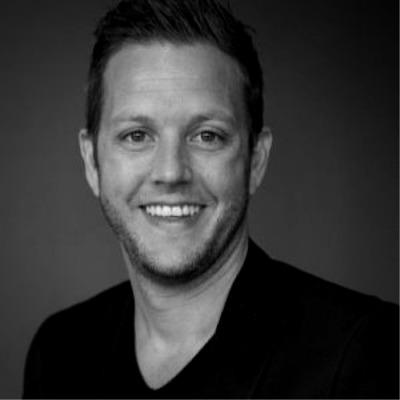
Working better, together.
By Hi5 Technologies

Working better, together.Mar 20, 2019

#20: Moments of genius: how to sell your company culture
Our first podcast of 2021 featuring David Donde, CEO Founder of Minimalist Chocolate and award-winning Truth Coffee. Read Full article >
David Donde is the Founder of Truth Coffee Roasting, which specialises in sourcing and roasting some of the world’s most exclusive coffees. Truth Coffee was named the world’s best coffee shop by MSN Travel in 2013 & again by The Daily Telegraph in 2015 & 2016. In 2018 the FNB Coffee Magazine Awards nominated Truth for Best Café Design and Excellence in Coffee. Their steam-punk interiors by lauded designer Haldane Martin won a Golden Loerie award in 2016.
With their well-known adage of “no sugar required”, David has applied his team’s combined expertise in coffee roasting to chocolate making with his most recent endeavour, Minimalist Chocolate. Minimalist chocolate contains no sugar and relies on the roasting process to bring out the sweet flavours in the cocoa beans.
On the question of how he began Truth Coffee, David tells the story of how he needed a new income and was down to his last 15 bucks, and on his way to get some fast food he received a phone call from his first investor. From there on, he focused on strategic brand building and figuring out what it was that made Truth Coffee different from others.
“Brand without culture is worthless, and vice versa.”Their culture strategy is to win hearts one customer at a time, and David firmly believes that culture cannot be driven by HR or some kind of “culture team” — everyone in the company is part of the culture team!
Moments of genius hardly happen in the office. Timestamp notes:0:10 — Introductions
1:08 — How David got into coffee
1:56 — How David built the Truth Coffee brand and created a successful business in a crowded market
2:35 — Does brand and company culture go hand-in-hand, and how do you ensure employees buy into the culture?
4:33 — Making company values more than words on the walls
6:13 — How South African cellular provider CellC got it all wrong with their Trevor Noah campaign
7:37 — Learnings through the process and what David would have done differently
8:55 — David’s experience working at an “extremely autocratic” company
10:00 — Advise for hiring
13:00 — How to become the best waiter in the world? David reflecting on Tom Peters’ In Search of Excellence
14:15 — An average day for David
15:10 — On productivity and ‘busy’ culture
19:23 — On the function of middle management and their role in building the culture
20:43 — What David’s been reading and listening to: The One Thing by Gary W. Keller and Jay Papasan
23:17 — How to reach David: Linkedin, Twitter, Instagram
If you have any feedback, comments, ideas or suggestions, contact us on twitter @giveahi5 or email us on podcasts@get5.io
#19: A time of amazing reinvention: remote work during COVID-19
Our first pandemic podcast featuring Carin-Isabel Knoop, Executive Director of the Global Research Group at Harvard Business School.
First published at www.get5.io/podcast
Carin Knoop is the Executive Director of the Global Research Group / Case Research & Writing Group at Harvard Business School, supporting faculty research and the development of about one-third of the School’s case study output and other types of research. She is a published researcher and co-author of the book Compassionate Management of Mental Health in the Modern Workplace, published last year.
Carin started attending HBS in 1992 to study her MBA, moving 10 metres from her dorm room to her office when she stayed on as a research associate. She explains that she came to HBS because she was interested in how organisations work, but fell in love with the academic side of things and decided to stay.
On the question of who should be managing and measuring culture in an organisation, Carin argues that everyone in the company is responsible for this. Why? Every person in an organisation makes decisions based on the company’s culture, for instance whether they will leave the company or whether to reinforce behaviours they deem as productive, etc.
“It’s really important to create an environment at work where you can have an open conversation.”Carin believes that, as s a manager, you should be making even more effort to ‘touch’ your employees — to make a difference in their lives and help them make a way through these difficult times.
“You need to change and think about how you’re going to build the culture.”Carin had met Clayton Christensen, the HBS professor who developed the theory of disruptive innovation first described in his 1997 book, The Innovator’s Dilemma. He also developed the concept of the Job To Be Done, which is something Carin often thinks of in terms of education and what it needs to accomplish in the world today.
“It’s a time of amazing reinvention.” Timestamp notes:0.11 — Hilarious introduction
1.54 — Carin’s background and what she does at Harvard Business School
2.30 — The global impact of research at HBS
3.10 — Mental health in light of COVID-19
9.22 — Stressors in the workplace and the low-hanging fruit for managers to help
10.14 — What’s the culture like at Harvard Business School
11.40 — The impact of the pandemic on higher education
13.15 — Carin’s career & the HBS ecosystem
14.50 — Who should be managing & measuring culture in an organisation? What is culture?
16.29 — Is recognition & feedback important for teams working from home right now?
18.47 — Communication and inclusion in the remote workplace
22.38 — Clayton Christensen & his books
24.23 — An average day for Carin & her fave reading material
26.16 — How to reach Carin: LinkedIN, cknoop@hbs.edu
If you have any feedback, comments, ideas or suggestions, please get in contact with us on twitter @giveahi5 or email us on podcasts@get5.io.
#18: Being a culture change insider
Full article published at https://www.get5.io/podcast/18-siobhan-mchale-culture-change-insider
Siobhan McHale is an acclaimed culture transformation expert and global executive. She currently holds the title of Executive General Manager of People, Culture & Change at Dulux Group.
She recently published her book, The Insider’s Guide to Culture Change, which walks readers through her four-step process to culture transformation.
One of the ways she catalyses culture change in companies, is through role reframing. She explains how each of us wear many hats during our day (parent, spouse, sibling) and even take on many roles at work (boss, subordinate, peer), which requires shifts in our approaches and behaviour. She maintains that, in order to change the behaviours in your workplace, you don’t have to get people to change their personalities; you can reframe their role/s to shift their behaviour.
What is company culture?Culture is the patterns of thinking & relating between the parts in the company, i.e. it’s at the collective level. She illustrates company culture as the dancer & the dance — the dancer is the behaviour, but the dance is the hidden patterns and rules of that behaviour.
“Culture change is leader-led.”Culture has always been important, but has been misdefined in many parts as being about employee engagement only, yet it’s so much more. Every aspect of your business — design, manufacture, supply chain — so we have to redefine & examine culture from a commercial lens, not purely an employee lens.
“Culture comes from strategy.” Timestamp notes1.09 — About Siobhan
1.55 — Why are you an insider?
5.47 — Definition of Culture in the workplace, and where’s she’s seen culture change. Case studies: Bank Australia & an infrastructure company.
11.30 — Why is culture so important right now?
12.50 — If you were to form a culture team, who should be in the team?
14.57 — How can the HR team convince the Exec team that a culture change is needed?
17.00 — An average day for Siobhan.
17.30 — Reading material: She enjoys articles LinkedIN and the Harvard Business Review.
17.48 — Fave productivity tool/software? She uses her calendar to structure her day and makes time for thinking strategically.
19.07 — How to reach Siobhan: LinkedIN, website, Twitter.
If you have any feedback, comments, ideas or suggestions, please get in contact with us on twitter @giveahi5 or email us on podcasts@get5.io.

#17: Organisational sub-cultures and how to set up a culture team
We chat to Jane Garza (Managing Director of culture change company, NOBL) on the benefits of culture change.
Originally published at https://www.get5.io/podcast/17-jane-garza-organisational-sub-cultures-how-to-set-up-culture-team
Jane Garza is the Managing Director of NOBL, a radical team of culture change experts whose mission it is to improve work and culture for more than 1 million people before they’re 10 years old.
She worked in HR for 8 years before joining NOBL. She became interested in HR consulting, was moving to LA, found a position at NOBL and is now the MD of their LA team.
HR is traditionally very reactive, which is good but can be exhausting in the long term. HR needs the opportunity to plan and exercise organisational skills. Culture has a big part to play in this.
“At NOBL we talk about sub-cultures a lot. Culture varies from one department to the next.”She believes culture can be changed, but it does take time. It’s less like a turnaround and more like an evolvement. Most often Jane doesn’t deal with totally toxic cultures (where people are rolling their eyes at each other in meetings), but more with companies that want to scale their precious happy company culture.
“There is a much larger success rate in companies that invest in their culture.” Jane on culture committeesThe intention of having a team drive a great company culture is great, but the danger is bucketing culture in a team of 10 people who are now forced to carry culture for the entire organisation, where this should be everyone’s responsibility.
On the other hand, these teams are able to listen to the rest of the organisation and act upon the feedback they receive. Jane suggests that when you’re putting together your A-team for a culture committee, don’t make it legislative; rather choose the people who are most excited in your organisation.
“Ultimately, your culture is the way you get work done.”Timetamp notes:
0.17 — Jane’s background in HR.
2.00 — HR as reactive vs. proactive.
3.33 — Can culture be changed?
6.28 — How to change culture.
8.17 — Who should lead a culture team in an organisation?
11.08 — Case studies of culture change.
13.00 — Fun facts about Jane. Favourite podcast: Adam Grant’s Worklife. Book: Orbiting the Giant Hairball: A Corporate Fool's Guide to Surviving with Grace by Gordon MacKenzie.
15.00 — Productivity tools: Feedly for reading RSS feeds.
15.37 — Get in touch with Jane at jane.garze@nobl.io or on LinkedIN.
If you have any feedback, comments, ideas or suggestions, please get in contact with us on twitter @giveahi5 or email us on podcasts@get5.io.

#16: How to cultivate values-driven work at an all-remote company
Previously the MD and Talent Manager of Brighthouse (now known as This Way Up), Nadia has worked at Gitlab since 2017 simultaneously recruiting to scale the company from 75 to 767 hired team members and building up her career in People Operations at the company. She moved into a management position at Gitlab a couple of months ago.
All 767 Gitlab employees work from home. It was decided from the start by the founders that the company would always stay remote.
“If we say all-remote, we really mean it. We have no offices anywhere in the world.” How does Gitlab maintain a productive remote company culture? Nadia lists some handy tips and tools.When she interviews people in different countries, she can almost immediately tell if it will not work out depending on how open the person is to other cultures. As a global all-remote team, it’s imperative to be able to get along with people from diverse backgrounds.
“We are non-political at work.”The Values-driven work at Gitlab is not only the responsibility of the management. It’s very bottom-up as opposed to top-down and Nadia reckons it’s up to everyone to help each other stay aligned.
Currently Nadia’s team is working on on-boarding and off-boarding and making sure it’s more of an experience than “train-stopping” for the employees entering and exiting the company.
In a discussion around Hi5 pulses, Nadia mentions it could be better to run 90-day pulse surveys than to run bi-annual 360 degree reviews. It’s also great to go back to what was said in the crucial time of on-boarding in the first 90 days to assess growth and alignment to values.
“Sticking to values-hiring as opposed to ‘bums in seats’ has definitely been game-changing.” Timestamp notes:0.11 — Intro
2.35 — About being an all-remote company
8.15 — Scaling the culture at Gitlab
13.28 — An average day for Nadia
15.12 — What she’s reading at the moment: The First 90 Days by Michael Watkins. Crucial Conversations by Al Switzler et al.
16.07 — On employee feedback & bi-annual 360 reviews
18.37 — Favourite productivity software? Gitlab for building tables and for onboarding, her calendar for blocking time on schedule.
20.46 — How to reach Nadia: Twitter, LinkedIN, nadia@gitlab.com.
If you have any feedback, comments, ideas or suggestions, please get in contact with us on twitter @giveahi5 or email us on podcasts@get5.io.Want to run 90-day employee pulses? Check out Hi5 Pulses 👉

#15: How design-thinking helps HR
Originally published at https://www.get5.io/podcast/15-melissa-hui-how-design-thinking-helps-hr
Melissa is educated in social sciences & anthropology, but has worked most of her career as a designer. With 15 years’ experience in the tech sector, she’s worked with major companies like Google, Microsoft and CapGemini, as well as startups, with her expertise in strategy, product-service innovation & operationalization, digital transformation and experience design.
She’s the founder of Context Leap, a people + culture consultancy in San Francisco that creates solutions for thriving workplace cultures, authentic leadership and empowered talent.
“Performance as a concept is very limited and narrow… Culture sets the cadence for everything.”Melissa practices design-thinking in every aspect of her life; in finding solutions both for her own business and for clients. This comes with the belief that building a company is the same as building a product — and this is where design can help HR flourish.
Even though HR is the “logical home” for growing organisational culture, much better results are seen when cultural design is implemented on a consulting basis across many companies.
“For culture to be successful, it has to come from the top… there’s a huge responsibility on middle management, too.”Companies are oftentimes prescriptive about their company culture, choosing the adjectives and values they think are “cool”, without really working on embodying these within the company. It’s very aspirational, but management need to focus more on continual feedback to understand what’s really going on. This will help them establish a more authentic culture.
“Performance follows when you have great culture.” Timestamp notes:0.16 — About Melissa and Context Leap.
1.57 — Why there is such a move from Design and Engineering to People Development?
3.45 — Who is responsible for culture in the company?
7.43 — What’s more important, culture or performance?
8.46 — Where companies go wrong with retaining culture.
10.36 — An average day for Melissa as a remote worker.
12.16 — Melissa on Ultra Working & design sprints.
13.00 — What is Melissa reading? Brené Brown, Adam Grant, Change Agent podcast by New York Times.
13.45 — Tools & Software she uses? Trello, pen and paper, Monday.com.
Want to reach out to Melissa? Find her on LinkedIN, her website or Twitter.
If you have any feedback, comments, ideas or suggestions, please get in contact with us on twitter @giveahi5 or email us on podcasts@get5.io.

#14: What it takes for CEO’s to scale up their companies
We chat to Founder Coach, Dave Bailey, on how he helps CEO’s move their companies from scale-up to success.
First published at https://www.get5.io/podcast/14-dave-bailey-what-it-takes-ceo-scale-up-companies
Timestamp notes:0.23 — Dave introduces himself.
1.00 — How Dave got into the Coaching business.
2.59 — What is Dave’s №1 regret?
3.12 — Dave’s coaching process.
3.39 — When is a good time to get a coach?
5.00 — Why every startup needs a Chief of Staff.
10.55 — The bias against HR.
14.23 — What to look out for when hiring a Chief of Staff.
18.10 — Dave’s view on company culture. What stops companies from innovating?
23.25 — How to increase self-knowledge.
30.50 — An average day for Dave.
31.56 — What is Dave reading? From Impossible to Inevitable (Ross & Lemkin), The Success Formula (Andrew Kakabadse), books about mental models. His best recent read is Attached: The Science of Adult Attachment(Levine & Heller).
35.00 — Software he uses daily? Productivity tool: Rev.com (audio transcription). Automation tool: Zapier to automate manual tasks. Recording tool: Loom as a low-friction, asynchronous alternative to text, and great for a remote team.
40.18 — How to reach Dave: Medium, Twitter, LinkedIn, Website

#13: The 5 Languages of Appreciation in the Workplace
We chat to Dr Paul White, experienced psychologist & speaker, and co-author of book The 5 Languages of Appreciation in the Workplace.
Originally published at https://www.get5.io/podcast/13-dr-paul-white-5-languages-of-appreciation-in-workplace
Dr Paul White is a psychologist, author, keynote speaker, leadership trainer & consultant who has been helping organisations like Microsoft and SHRM“make work relationships work” for the past 20 years.
He co-authored The 5 Languages of Appreciation in the Workplace: Empowering Organizations by Encouraging People with Dr Gary Chapmanand based the work on Dr Chapman’s revolutionary and popular The 5 Love Languages. Their book has recently been republished with new insights added from Gallup and other current research into employee engagement and happiness.
Dr White’s work is all about helping people in organisations give the kind of appreciation that helps individuals flourish in their roles — whether they respond best to words of affirmation 💬, quality time 🕰, acts of service 🛠, tangible gifts 🎁 or physical touch 🤝.
“Not everyone feels appreciated in the same way.” Timestamp notes:0.33 — Who is Dr Paul White?
2.00 — The science behind the book, The 5 Languages of Appreciation in the Workplace.
3.15 — Why just saying ‘thanks’ doesn’t work.
6.50 — The most common mistakes with recognition in organisations.
8.04 — “It’s not about the big stuff.”
9.12 — Recognition: top-down vs. peer-to-peer.
11.50 — An average day for Paul.

#12: HR trends today
Tom Haak, Founder and Director of the HR Trends Institute, tells us how he became an HR trend watcher, and what’s happening in HR today.
Originally published at https://www.get5.io/podcast/12-tom-haak-hr-trends-today
Tom Haak has always worked in HR. Based in the Netherlands, he worked his way up from a trainee to a senior position at Phillips Electronics, went on to other multinational companies like Aon and KPMG and later took the position of global HR Director for Arcadis, a leading global natural and built asset design & consultancy firm. He founded the HR Trend Institute in 2014. Tom transformed himself into a trend-watcher and reads, speaks & breathes HR trends.
The HR process is in need of a gear-change — Tom suggests the following for speeding up talent management & recruiting, ultimately creating a system where the right candidates will present themselves to you:
- Use analytics (more evidence-based and therefore more objective).
- Use technology (We have a lot of data at our fingertips, and Search is a powerful feature: “Machine, I want this kind of candidate please.”).
- Make the processes more transparent (open processes are more engaging and run more smoothly).
Timestamp notes:
0.35 — About Tom and how he became involved of the HR Trend Institute
2.30 — What is the future of HR education in tertiary institutions?
6.10 — The 10 talent management trends for 2019.
10.04 — How to speed up the HR process.
13.12 — Development as a service — individual growth through external consultancy.
18.30 — Tom’s daily working routine.
19.55 — Tom’s best reads? Online sources: LinkedIN, Twitter, Flipboard. Books: Factfulness by Hans Rosling, Het bestverkochte boek ooit (met deze titel)by Sanne Blauw (dutch).
21.31 — How to use HR data, and who should own it?
27.16 — Best way to get hold of Tom? Website, LinkedIN, Twitter.
If you have any feedback, comments, ideas or suggestions, please get in contact with us on twitter @giveahi5 or email us on podcasts@get5.io.

#11: Bringing the Humanity back into HR
We chat to Claude Silver on how she brings the humanity back into HR as the Chief Heart Officer at Vayner Media.
Originally published at https://www.get5.io/podcast/11-claude-silver-bringing-humanity-back-into-hr
In her almost 5 years of working at Vayner Media as their Chief Heart Officer, Claude Silver (Publicis London, Garageband.com) has assisted in growing the VaynerX parent company from 389 to 650+ employees while retaining their family-first culture.
Claude created “Culture Champions” in the various offices; people who are collaborative, who ‘get’ the company’s culture, those who always choose to be the least in the situation. In other words, people who are trustworthy, who do not micro-manage & who are great at making people feel welcome and slotting them into the culture.
Timestamp notes:
2.07 — On retaining and growing a “family-first” culture at VaynerX.
7.25 — How Claude became the Chief Heart Officer.
10.15 — Claude on HR.
11.30 — What makes VaynerX’s culture so special?
16.02 — Claude’s day-to-day.
16.34 — Recent favourite reading material? You are a badass by Jen Sincero, Braving the Wilderness by Brené Brown, Man’s Search for Meaning by Viktor Frankl.
17.10 — Favourite productivity tool? Slack & IM, banking apps, phone apps, Spotify, Instagram — anything that gives her info at a click.
17.35 — Biggest challenge with managing people these days? Getting people to listen!
If you have any feedback, comments, ideas or suggestions, please get in contact with us on twitter @giveahi5 or email us on podcasts@get5.io.

#10: Actions vs Behaviour
Originally published at https://www.get5.io/podcast/10-richard-shotton-actions-vs-behaviour
We chat with Richard Shotton, author of “The Choice Factory”, experienced media planner & behavioural scientist and founder of Astroten media consultancy.
Richard Shotton started his career as a media planner working with brands such as Coke, Lexus and comparethemarket.com before he found his passion in applying behavioural science to business problems. He writes about the behavioural experiments he runs for publications such as Marketing Week, The Drum, Campaign, Admap and Quartz.
His first book, The Choice Factory: 25 Behavioural Biases that Influence What We Buy, is aimed at marketing & advertising practitioners, but is rooted in social psychology and how people make everyday decisions. These principles are easily applied to the office environment, where people’s behaviours shape the organisational culture. People do not act more rationally in the workplace — they are just as influenced by biases & their personal fears.
What people say motivates them, and what actually motivates them, are two different things.
Timestamp notes
0.56 — About Richard and how he got hooked on behavioural science.
4.26 — Background to his book, The Choice Factory.
8.50 — What leaders & companies can learn from behavioural biases.
13.16 — An average day for Richard.
13.32 — Richard’s favourite reading and listening material. He listens to the More or Less podcast by Tim Harford.
14.08 — How to reach Richard: Twitter @rshotton, LinkedIN.
14.21 — Richard’s favourite productivity tool? Books! Best way to get more ideas.
14.52 — Deep look into Richard’s book, The Choice Factory.

#9: Why startup culture works
Breegan works with growing startups to implement clearly defined cultural values, an onboarding programme unique to the company, and sustainable, authentic hiring practices. She has also worked in large companies like Amazon and Snap Inc. (the makers of Snapchat).
When it comes to company culture, Breegan thinks that startups have somewhat of an advantage to large organisations, since you start with a ‘clean slate’ — having a smaller team of people who are deeply passionate about the same thing (app, product, service), without the history, red tape & bureaucracy that burden larger organisations.
Oftentimes startups also hire a core team of experienced people who have learned some valuable lessons at previous companies they’ve worked at (read: what not to do). This means there’s a great opportunity to grow a more intentional company culture in the startup environment.
That doesn’t necessarily mean that one environment is better than the other — startups just have more risk involved and therefore employee retention is super important.
Employee retention really begins at the onboarding — there’s so much data around how a company’s onboarding process makes or breaks an employee’s experience. This, of course, bleeds into the company’s culture as a whole.
"Over half of senior leaders will leave their company in the first year of employment because of a bad onboarding experience."
Breegan’s tips on how to retain a great company culture:
- Interest in the employee as an individual & their growth
- Effective, open lines of communication
- Constant feedback
- Developing real relationships with co-workers
- Keeping a good balance between structure & process and fun & creativity. People need to know where they stand in the company in order to feel safe.
"What people are really interested in, is whether they are valued."
Timestamp notes:
1:30 — About Breegan.
2:56 — Startups vs larger organisations.
5:20 — Breegan’s learnings on onboardings & employee retention.
7:41 — Are CV’s still important? Breegan on her recruiting experiences.
11:17 — How to retain a great company culture.
13:30 — Anything you would have done differently?
17:23 — An average day for Breegan.
18:24 — What Breegan’s reading: How to find fulfilling work by Roman Krznaric, The Advantage: Why Organizational Health Trumps Everything Else In Business by Patrick Lencione.
19:18 — Software tools: Google Calendar for meetings, Asana for project management.
19:50 — Reach out to Breegan at breeganharper@gmail.com, or check her out on social: Twitter, Instagram, LinkedIN, website.
Fedback? Mail us at podcasts@get5.io

#8: How to treat employees like adults
Originally published at https://www.get5.io/podcast/8-rob-stokes-treat-employees-like-adults
Rob Stokes is an investor, entrepreneur & speaker who is passionate about business and education. He sits as a non-exec Director on the boards of BrandsEye, Openbox, Happy Flats and CloudOne.mobi.
Rob founded the digital agency Quirk in 1999, one of South Africa’s earliest, most award-winning and now largest digital agencies, with five offices across Africa and in London. The company was acquired by WPP in 2014 and then became Mirum Africa in 2016. Nowadays Rob heads up Red & Yellow, the Creative School of Business (they are also the new co-organisers of DisruptHR Cape Town).
Inspired by books such as Maverick by Ricardo Semler and How to Fail at Almost Everything and Still Win Big by Scott Adams, Rob grew his successful startup Quirk on the principles of treating employees like adults; giving them the freedom to work flexible hours & measuring their productivity through performance and output rather than ‘face time’ in the office.
“The world has changed a lot and keeping those outdated mindsets is a disadvantage.”Timestamp notes:
0.25 — Rob chats about his concept of Juniors & Giants, as well as the parallels with Ricardo Semler’s book Maverick.
6.50 — Input vs Outcomes when it comes to work & attracting talent.
9.50 — Rob’s learnings through managing people over the last 10 years.
15.37 — Rob’s recipe for success: Skills + Motivation + Expectation = Success
18.35 — More books that have inspired Rob: Mindset by Carol Dweck
23.00 — Podcasts Rob listen to: The Knowledge Project, Tim Ferriss.
24.11 — Reach Rob on the interwebs: Twitter, LinkedIN, Facebook

#7: The New World of Work
In this episode of our Working better, together. podcast, Themba Chakela joins us for a chat around the state of HR and the “new world of work.”
Themba wears many hats (check out his LinkedIN profile), but is currently the new People and Culture Director for Go-To Market at global IT company, Dimension Data (founded in 1983 in SA).
As a well-educated and experienced HR practitioner, Themba gives us some great insights into the HR landscape, as well as what the future may hold. He believes that middle management plays a bigger role in organisational culture and employee retention than we realise.
“What you need to think about now [in HR], is how do you get people to engage with an organisation from a head, heart and hands perspective…”
Themba argues that the golden egg for your company could be in unlocking the secret to great middle management. As a manager, you should be setting the tone for robust, candid conversations to take place. Management truly sets the standard for their company’s culture.
In the episode, Themba shares some great stories of how a CEO’s behaviour can have an incredible impact on the company’s culture.
“Two things that have stood me in good stead, is to show up and to put your hand up.”
Themba was the former General Manager, Group Organisational Effectiveness at Britehouse, which has now become part of Dimension Data. In his new role at the new company, he sees himself as being in the fortunate position of watching a beautiful learnership unfold as the larger company’s thinking and conceptualisation is transforming the smaller company, and vice versa. It might be difficult for some to believe, but large corporates and SME’s can actually learn a lot from each other!
“Yes, there are challenges and they are significant, but I believe I haven’t met a challenge that I didn’t want to get to know a little bit better.”
Regarding the role of HR in businesses, Themba is well aware that they often have the least say in the conversation. “The further you move away from the financial indicators of your business, the less time you get to represent yourself,” he says. This means when HR speaks up, it really has to count…
Timestamp notes:
0.50 — About Themba — where he’s from and how he ended up in SA working for Dimension Data.
3.09 — Moving to Lesotho at a time when SA was steeped in Apartheid.
4.55 — Sweden vs South Africa today.
6.56 — About Themba’s role and education.
10.48 — HR as a discipline and how it has been evolving.
15.14 — Company Culture: The biggest opportunities companies are missing out on.
20.00 — Themba’s learnings on his journey in HR.
22.05 — An average day in the life of Themba.
23.10 — His favourite reads.
24.56 — Productivity tools/software he uses daily, like Outlook, Microsoft teams, Trello, Planner.
25.41 — What is Chucky Management Mondays?
26.42 — Themba’s channels: LinkedIN, Twitter. He keeps his Facebook and Instagram personal.
27.27 — Famous last words: “The New World of Work.”

#6: Why innovation requires the right culture
Richard Mulholland is a highly regarded business thinker, innovator and speaker. He authored his book Legacide: Why legacy thinking is the silent killer of innovation (with another book on the way!), is an avid blogger and vlogger, writes for Longevity and Destiny Man and besides recording a weekly podcast on CliffCentral, he also lectures a bit at The Cape Graduate School of Business (GSB) and the Gordon Institute of Business Science (GIBS).
Richard kicked off his career as a rock ‘n roll roadie, operating lights for bands such as Iron Maiden and Def Leppard. He went on to start SA’s largest presentation firm, Missing Link, and then co-founded SA’s first perspective lab, 21Tanks.
In this episode of Working better, together., Rich chats to us about his fascinating career and his thoughts on innovation in business. We’ve put down some notes below 👇
“In an established company, innovation doesn’t happen when you start doing something new. Innovation happens when you stop doing something old.”
When it comes to “legacide” (the putting to death of legacy thinking, which truly enables innovation), it seems that it really comes down to organisational culture: in order to innovate, you need to have the kind of culture where people can call you out on your particular solution — it may have solved a problem before, but now there could be better tools to do the job or perhaps the problem has shifted.
“It’s inconceivable that the tech solution that we start creating today will be the ultimate solution that solves a problem 3 years from now… Understand that it’s going to change.”
You need to ask yourself these three questions:
1) What problem were we solving when we put this in place?
2) Is this still a/the problem?
3) Is the way we solved it then, still the best way to solve it now?
“People become so invested in a system/process/thinking behind a solution, but we need to rekindle our love for the problem. It’s always about the problem.”
So, when it comes to your company culture, you need to amplify certain behaviours. If you amplify negative or legacy behaviours (even by saying ‘we will never tolerate this’), that behaviour will have the strongest gravity. You need to constantly try and amplify the behaviour you’re trying to replicate.
“People don’t create a culture. Some people create a culture. Usually the negative person has a stronger gravity.”
Timestamp notes:
1.32 — Richard tells us about his business background and now his transition into a new company, Cultovation.
3.31 — What is SnowCon?
4.54 — Richard on innovation.
7.17 — The obvious things that companies need to grow a culture for innovation.
9.42 — Large companies vs small companies.
11.14 — So what’s the best way to fix a culture problem? What is your definition of culture?
15.00 — The importance of transparent recognition.
15.40 — An average day for Richard. Very interesting!
18.36 — A lesson learnt while waitering at Spur when Rich was 20.
19.12 — About learning fatigue.
21.13 — How to reach Richard. Website: richardmulholland.co.za, Youtube (easy-to-watch weekly vids), Facebook, Twitter, Instagram

#5: Gangs of Ballet

#4: LEMON: a radically fresh take on leadership.

#3: Colombo Coffee & Tea: collaborative company culture.

#2: Travelstart - the recruitment story.
We chat to Lee Watts, Business Partner (People Team) at Travelstart, on how this “startup” became 300+ staff strong.
Conceived in Sweden, Travelstart first opened its doors in 1999, as the brainchild of Travel visionary Stephan Ekbergh. In true start-up fashion, Sweden’s first online travel agency was run from an old coffee roastery in the town of Helsingborg. Nearly two decades, plenty of learning, growth and one African immigration later, Stephan still heads up Travelstart, which is now based in the Cape Town CBD.
Lee is of the opinion that in terms of (human) resources and “drive-towards entrepreneurial spirit,” African tech companies seem to be about 18 months behind the international tech market, but are starting to catch up!
“Speed is the ROI of execution.”
In this podcast, Lee gives a breakdown of the methodology Travelstart has employed in recruiting over 180 people in only 2 years, as well as how culture is taken into consideration in their recruiting process as each individual inevitably augments the organisational culture of the company. This measurement he calls their "commitment blueprint."

#1: How to set vision & values in a high performance company
Welcome to our first episode of Working better, together!
In this episode, we chat to Bailey Kropman, who is the Head of Talent and Organisational Performance at Superbalist.
Superbalist.com is South Africa’s biggest and trendiest online shopping destination for fashion and apartments.
Bailey takes us through how she has impacted the growth at Superbalist — which was literally a startup when she joined 3 years ago.
We discuss her learnings of blitz-scaling from 5 to 150 employees, whilst retaining the high-performance startup culture.
We also discuss retaining the culture by intentionally setting up the vision and values and continuously getting buy-in from leadership, as well as the rest of the company.
Hope you enjoy! If you have any feedback, comments, ideas or suggestions, please get in contact with us on twitter @giveahi5 or email us on podcasts@get5.io.